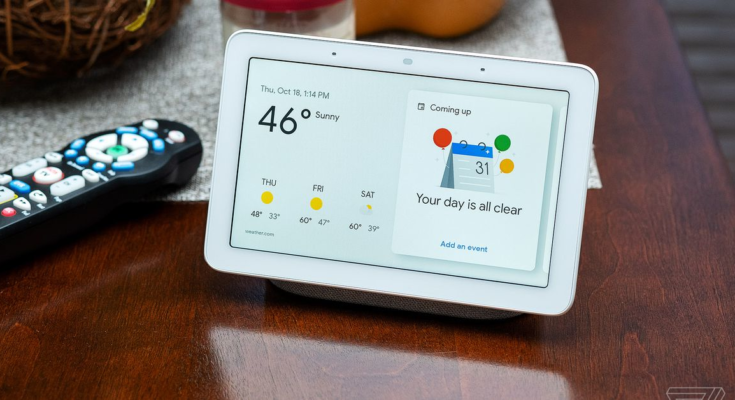Google has started to push out the silent upgrade to its new Fuchsia operating system on first-gen Nest Hub devices (known as the Google Home Hub on release), meaning the secretive project will be broadly used by consumers after years of opaque development. The OS, which unlike Android isn’t based on Linux and uses a microkernel called Zircon, was previously made available to some devices enrolled in a preview program back in May.
Now, Google has confirmed to 9to5Google that a new firmware update for non-preview Nest Hub devices includes the Fuchsia upgrade, meaning that all first-gen devices should be running Fuschia already or very soon. I just checked the one on my desk — which Google explains how to do here — and sure enough, turns out it’s on Fuchsia right now.
You might’ve thought I’d have noticed that a device that I look at and interact with every day is running an entirely new operating system, but Google is attempting to make the experience as close to identical as possible. Even the pokey performance on the first-gen Nest Hub appears to be very similar, for better or worse. The only way to know you have Fuchsia is by checking the “About device” section of the settings menu, and even then the OS isn’t mentioned by name.
That means that the first widespread Fuchsia deployment isn’t quite as exciting as the possibilities imagined when word of the project first started getting out more than five years ago. At the same time, it’s quite impressive that Google has managed to seamlessly replace the core software of a popular product in a way that most people won’t ever notice.



